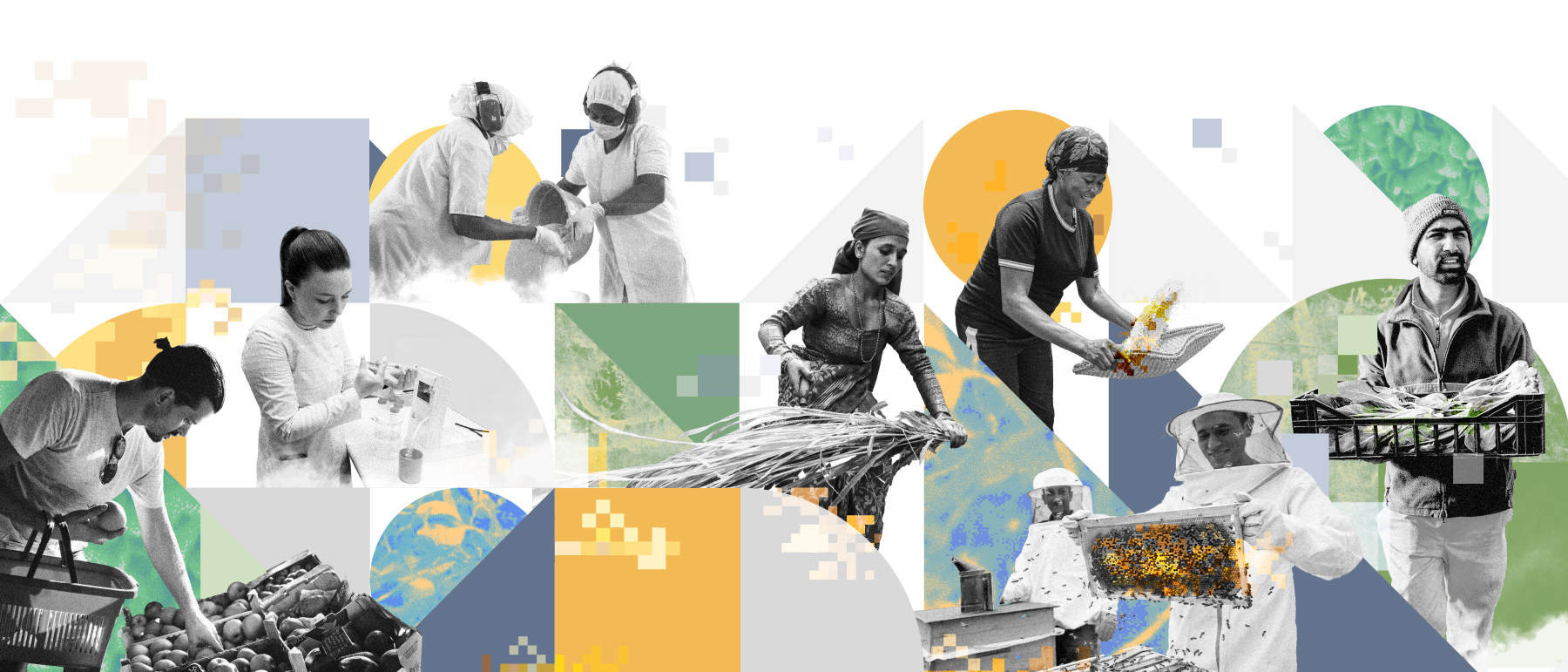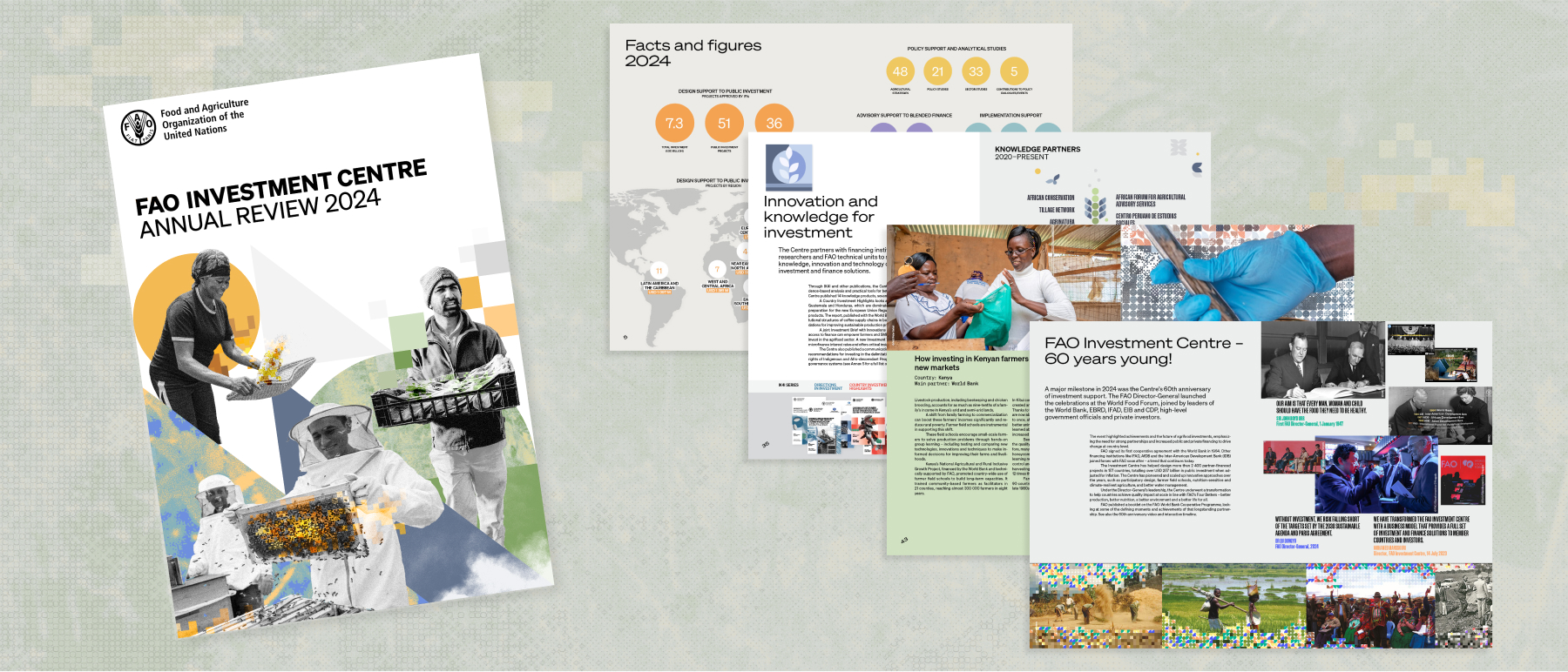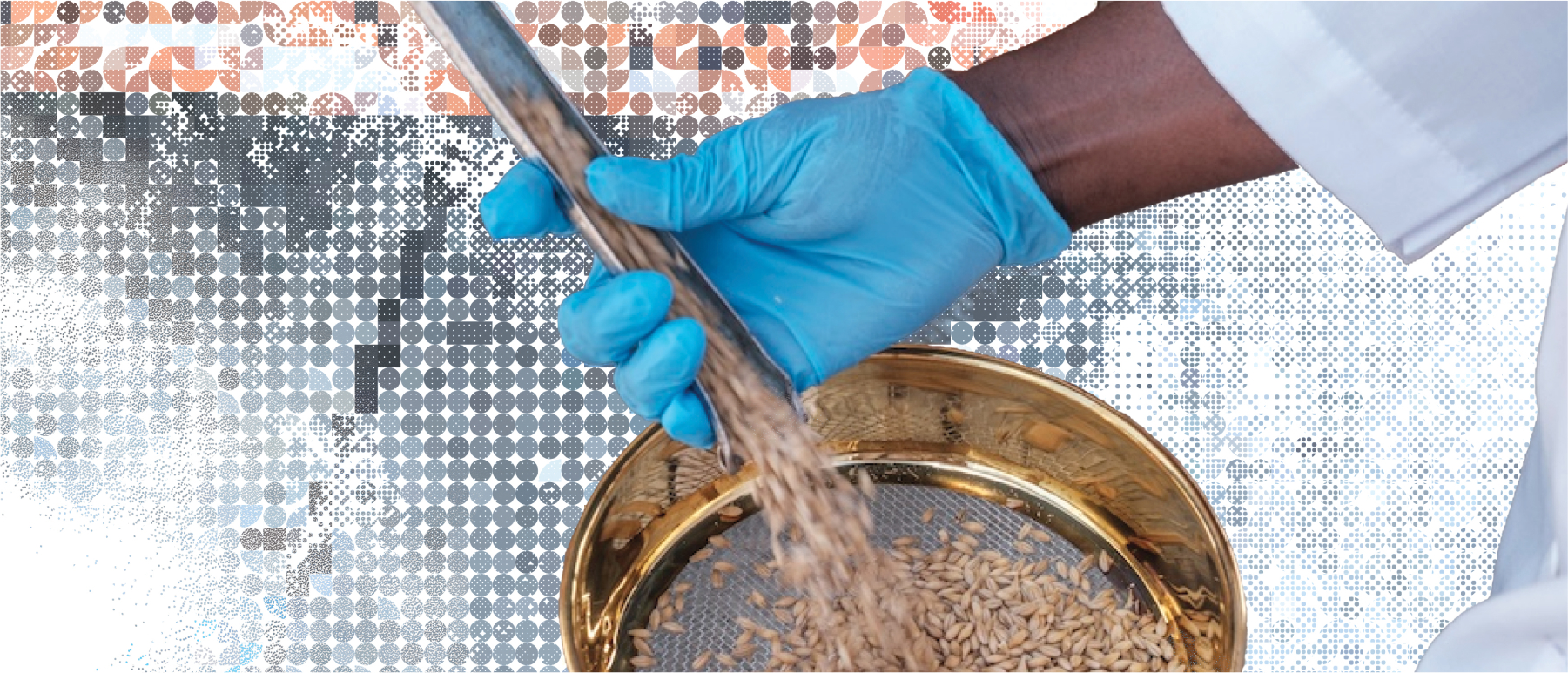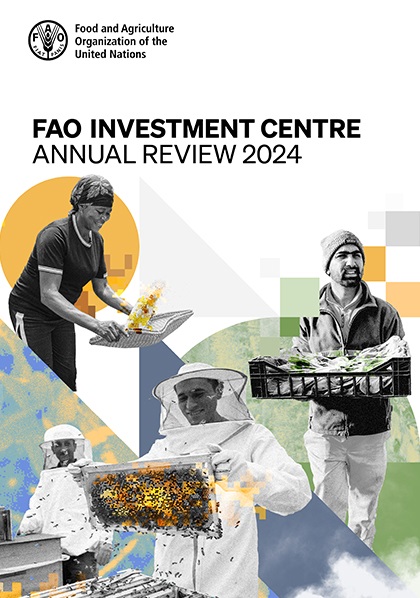Making agrifood investments work for people and the planet
The FAO Investment Centre looks at 2024 and ahead

FAO Investment Centre Annual Review 2024.
©FAO
Investments in agrifood systems change lives. They lift people out of poverty and hunger. They connect small-scale farmers and rural entrepreneurs to financing and markets. They build resilience in communities, protect vital ecosystems and biodiversity, and much more.
The FAO Investment Centre’s latest Annual Review – out today – offers a snapshot of this work with its partners in 2024.

That includes help in designing 51 projects in 36 countries approved by financing partners for USD 7.3 billion in new public investment. The Centre contributed to 48 agricultural strategies, 33 sector studies, 21 policy studies and 5 policy dialogues in 92 countries. And it supported ongoing investment projects, totalling over USD 49.5 billion in investment, to ensure end-to-end quality and lasting results.
In the Annual Review’s Foreword, FAO Director-General QU Dongyu urged the global community to turn the enormous challenges the world faces today “into opportunities.”
“To do this, we need to leverage science, innovation, enabling policies and investment to produce more with less: more foods – both in quantity and diversity – with a smaller footprint,” he wrote.
He added that “as we gear up to celebrate FAO’s 80th anniversary in October 2025, what better way to honour this milestone than by working together efficiently, effectively and coherently to achieve our collective goal of a better food-secure future for all.”

Trusted partner for investment solutions
The Centre, which celebrated its 60th anniversary in 2024, is a trusted partner for tailored investment and finance solutions.
Strong and evolving partnerships with countries and financiers are at the heart of the Centre’s thriving business model, combining technical expertise, financing, innovations, global outreach and in-depth country knowledge.
In 2024, the Centre teamed up with the World Bank on a joint study examining the challenges smallholder coffee producers in Guatemala and Honduras face in preparing for the European Union’s regulation on deforestation-free agrifood products.
The Centre’s ongoing work with the European Union and others on the Sustainable Agrifood Systems Intelligence initiative is providing countries with the knowledge and guidance they need to accelerate the transition to sustainable agrifood systems.
FAO and the European Bank for Reconstruction and Development launched a joint technical assistance package to identify and implement roadmaps for climate-smart agrifood systems, while new Green Climate Fund projects are helping countries attract much-needed climate finance.
Work on blended finance to unlock sustainable private investment advanced in 2024, with activities planned with newer partners like the European Investment Bank and Cassa Depositi e Prestiti.
The Centre also continued to support countries and regional and subregional initiatives through the Hand-in-Hand Initiative – an excellent example of the One FAO spirit in action. This included preparations for the third Hand-in-Hand Forum during the 2024 World Food Forum.
 Looking ahead
Looking ahead
Transforming the world’s agrifood systems to be more sustainable, resilient and inclusive is as urgent as ever.
FAO and its growing network of partners are committed to creating an enabling environment to crowd in more public, private and blended financing to accelerate that transformation.
By working across FAO and with financiers and academic and research institutions, the Centre will continue to integrate game-changing tools, technologies, data and innovations into its investment and finance solutions.
Ensuring that every person on the planet has access to good food at all times, today and tomorrow, “motivates us to do more and better around agrifood investment,” said FAO Investment Centre Director Mohamed Manssouri.
“As we evolve with our partners, we remain committed to providing investment and finance solutions that drive real change for a better future,” he said, adding that FAO is “ready for business, there is no time to lose.”

Related publication

